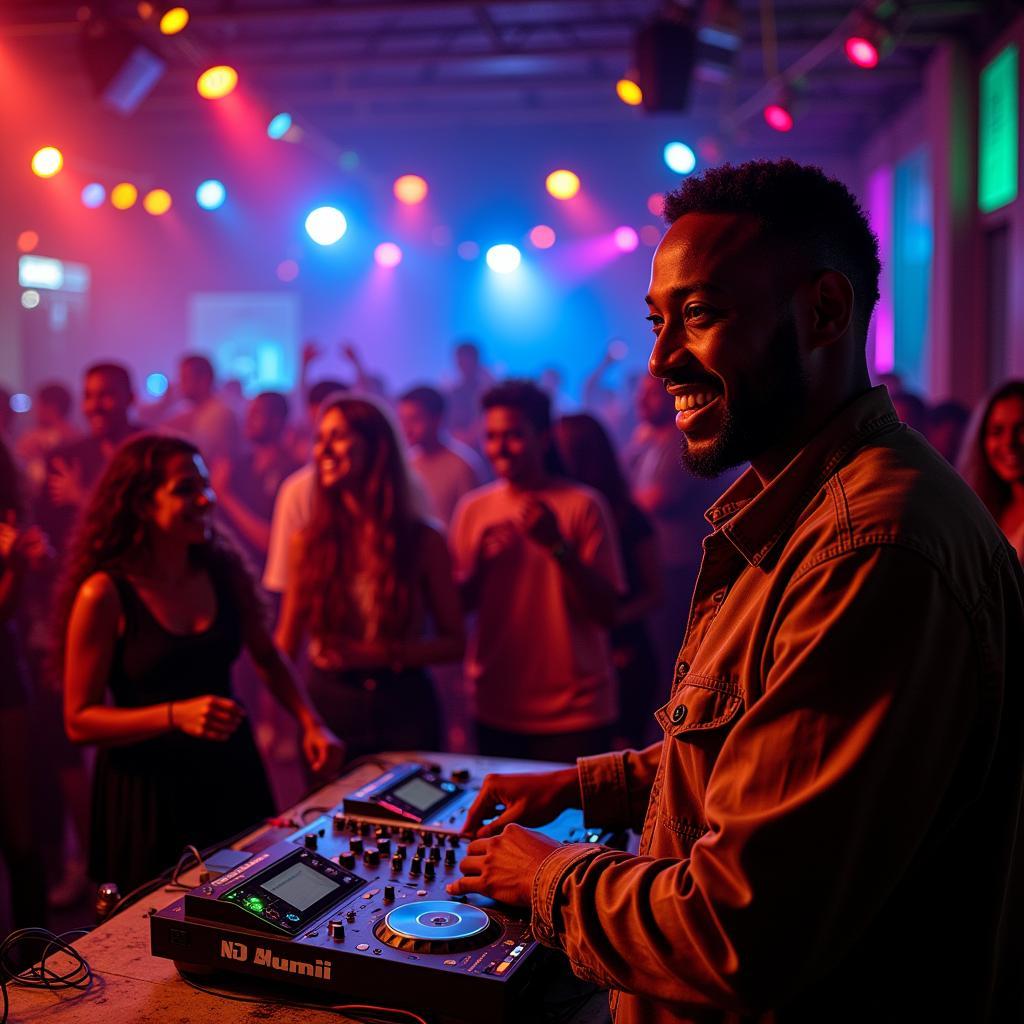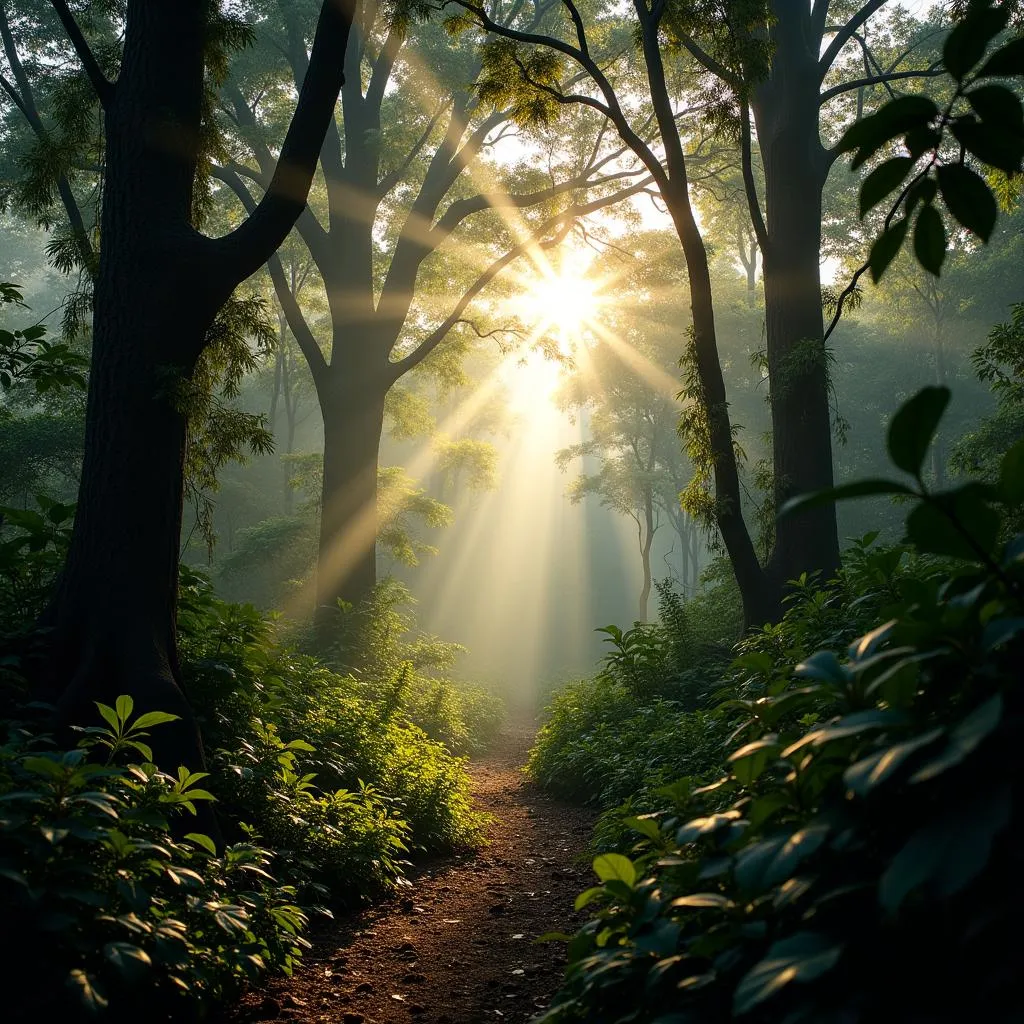African Attack Crocodile: Understanding the Dangers and Staying Safe
African Attack Crocodile incidents are a stark reminder of the power and danger lurking beneath the surface of African waterways. These ancient predators, perfectly adapted for ambush and swift attack, pose a significant threat to both humans and animals. Understanding their behavior, habitat, and the precautions necessary to avoid conflict is crucial for anyone living near or visiting crocodile-infested areas in Africa.
Decoding the African Crocodile Attack
African crocodiles, primarily the Nile crocodile, are among the largest and most aggressive crocodile species. Their attacks are often swift and brutal, utilizing their immense jaw strength and sharp teeth to subdue their prey. While crocodiles primarily hunt fish, birds, and other animals, they are opportunistic predators and will attack humans if given the chance. These attacks are not always predatory; they can also be territorial, especially during mating season. Several factors can contribute to an increased risk of attack, including human encroachment on crocodile habitats, improper waste disposal attracting prey animals, and lack of awareness about crocodile behavior. african crocodile range What motivates a crocodile to attack? Often, it’s a combination of hunger, territorial defense, and perceived threat.
The Nile Crocodile: Apex Predator
The Nile crocodile is the dominant species in most African waterways, and it’s responsible for the majority of reported attacks. These powerful reptiles can grow up to 20 feet long and weigh over a ton. Their camouflage allows them to blend seamlessly into their surroundings, making them even more dangerous. They are ambush predators, patiently waiting for unsuspecting prey to come within striking distance. Their powerful tail propels them through the water with incredible speed, and their jaws can exert a crushing force. Are all African crocodiles dangerous? While all crocodiles should be treated with caution, the Nile crocodile poses the greatest threat due to its size, aggression, and widespread distribution.
Avoiding Crocodile Encounters: Essential Safety Tips
Staying safe in crocodile territory requires vigilance and adherence to safety guidelines. Never approach the water’s edge alone, especially in areas known to be inhabited by crocodiles. Avoid swimming in rivers or lakes where crocodiles are present, even if designated swimming areas are available. african defense Crocodiles are skilled hunters, and they can easily ambush unsuspecting swimmers. Always be aware of your surroundings, and never let children play unsupervised near water. african buffalo deadly creatures What are some practical tips for staying safe around crocodiles? Avoid swimming at dusk and dawn when crocodiles are most active, never feed crocodiles, and keep a safe distance from the water’s edge.
How to React during a Crocodile Attack
While prevention is always the best strategy, knowing how to react during an attack can be life-saving. If attacked, fight back with everything you have. Aim for the crocodile’s eyes, nose, and throat, which are its most vulnerable areas. Making loud noises and creating a commotion can also deter the crocodile. If you witness someone being attacked, try to distract the crocodile by throwing objects or making noise. african attack fish food Immediately seek medical attention, even if the injuries appear minor, as crocodile bites can cause severe infections. What should you do if you see a crocodile? Maintain a safe distance, do not approach it, and report the sighting to local authorities.
Dr. Akinyi Otieno, a leading expert in African wildlife conservation, emphasizes the importance of respecting crocodile habitats: “Crocodiles are an integral part of the African ecosystem. Understanding their behavior and taking necessary precautions is essential for peaceful coexistence.”
Professor Jabari Mwangi, a renowned herpetologist, adds: “Education and awareness are key to minimizing human-crocodile conflict. By understanding the risks and following safety guidelines, we can significantly reduce the incidence of attacks.”
In conclusion, African attack crocodile incidents highlight the importance of understanding these formidable predators and respecting their environment. By implementing safety measures and spreading awareness, we can mitigate the risks and ensure both human and crocodile populations thrive. Remember, vigilance and respect are key to staying safe in crocodile country. african elephant vs lion
FAQ:
- What is the most dangerous crocodile in Africa? The Nile crocodile.
- What attracts crocodiles to humans? Often, it’s a combination of hunger, territorial defense, and perceived threat. Human activities like improper waste disposal can attract prey animals, increasing the risk of encounters.
- When are crocodiles most active? Dusk and dawn.
- What should I do if I see a crocodile? Maintain a safe distance and report the sighting to local authorities.
- How can I protect myself from a crocodile attack? Avoid swimming in crocodile-infested waters, be aware of your surroundings, and never approach the water’s edge alone.
- What should I do if a crocodile attacks me? Fight back aggressively, aiming for the eyes, nose, and throat.
- Are all crocodile attacks predatory? No, some attacks are territorial, especially during mating season.
When you need assistance, contact us:
Phone: +255768904061
Email: [email protected]
Address: Mbarali DC Mawindi, Kangaga, Tanzania.
We have a 24/7 customer service team.

